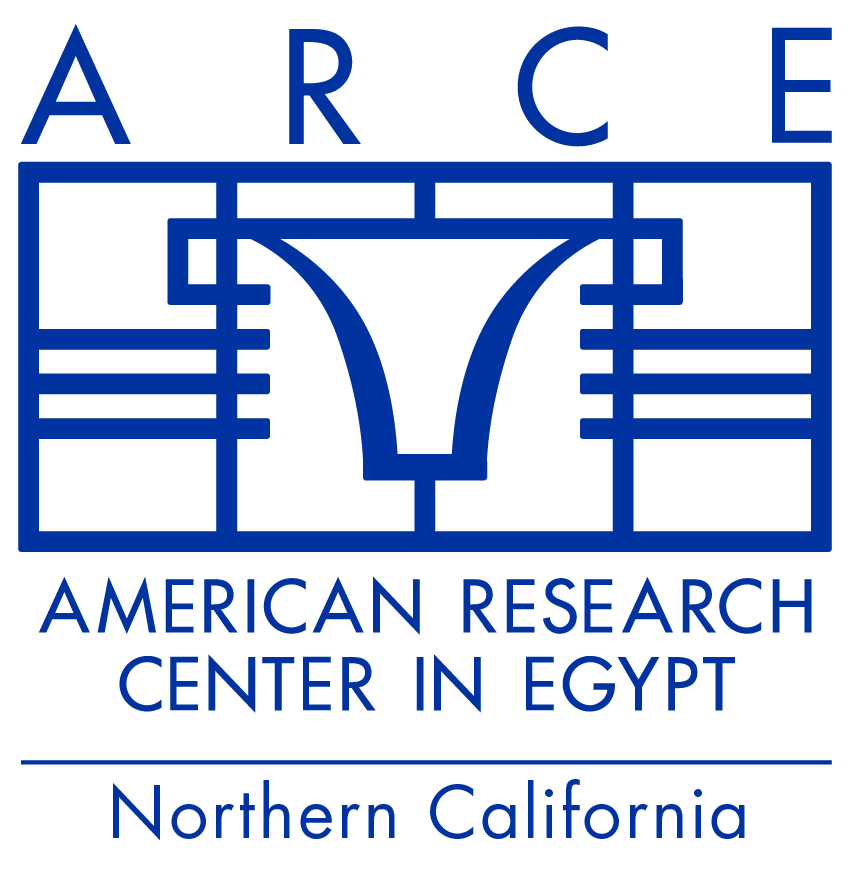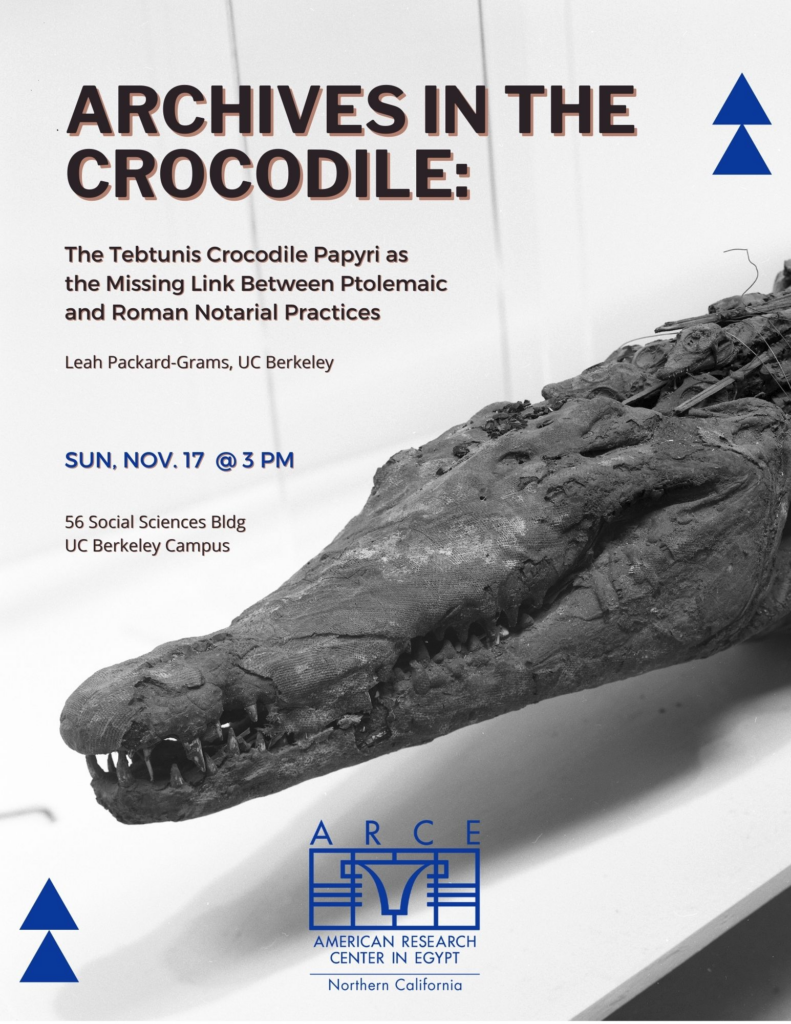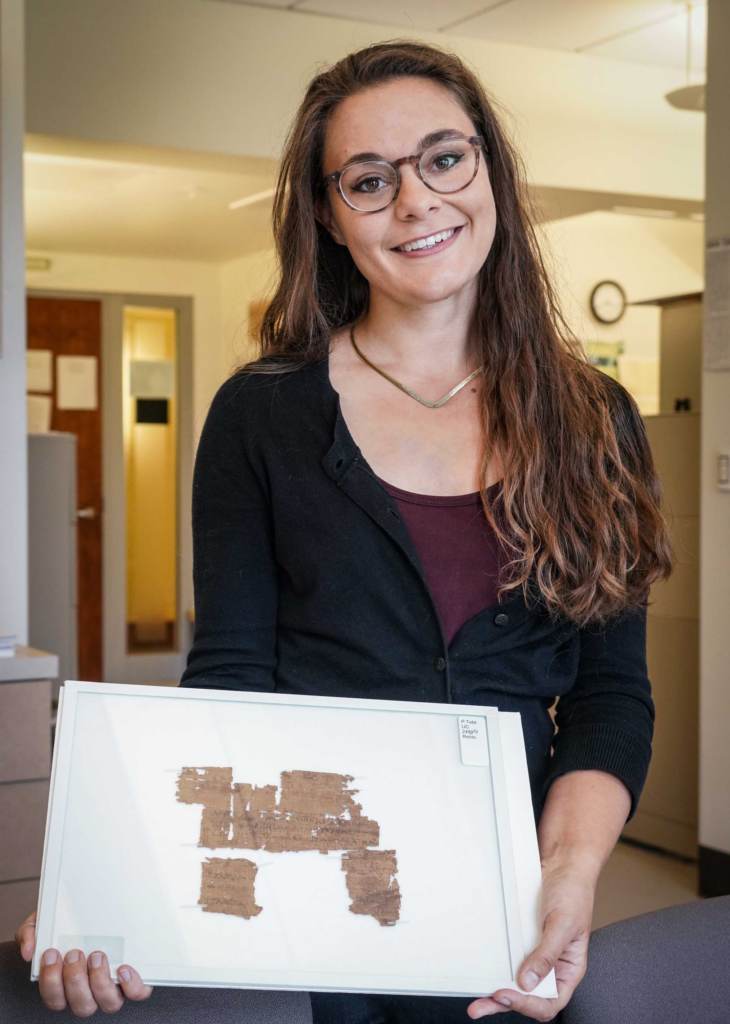
17
NovARCE-NC: Archives in the Crocodile: The Tebtunis Crocodile Papyri As the Missing Link between Ptolemaic and Roman Notarial Practices
Presented by Leah Packard-Grams
No registration is required for the lecture.
- 3 PM Pacific Standard TimeNorthern California
- In-PersonRoom 56 Social Sciences Building, UC Berkeley
- + Add to Calendar
Lecture Information

One of the most important finds of Egyptian papyri was discovered entirely by accident. An Egyptian workman (whose name the excavators do not report) broke open a crocodile mummy he had found while digging, and beneath the linen mummy bandages were hidden papyrus archives that reveal the history of the “lost century” of ancient Egypt. The documents found stashed inside the 36 votive crocodile mummies at the site of Tebtunis are everyday papers, but their value and uniqueness is hard to overstate: The texts are from the 1st century BCE, a time when Egypt’s documentary record plummets. In this century, Egypt was in its last decades of native rule under Cleopatra’s father Ptolemy XII, and the Roman Republic was peering at the bounty of Egypt with an eye toward conquest. The archives in the Tebtunis crocodiles show a glimpse of everyday life in this period of uncertainty, offering insights into the economic conditions and state-mandated notary practices of the lost century of Egypt’s history.
These crocodile papyri have never been examined in a holistic way that considers their archaeological assemblage of votive artifacts, the full extent of the subarchives, or the importance of the crocodile temples to the documents themselves. This is precisely what this project proposes to remedy.
This in-person lecture will not be virtual or recorded.
Speaker Bio

Leah Packard-Grams an interdisciplinary ancient historian, papyrologist, and archaeologist in UC Berkeley’s interdisciplinary program (AHMA) currently writing her dissertation on the topic of today’s lecture. Her primary interests include Greek and Demotic papyrology, the archaeology of Greco-Roman Egypt, and the materiality of ancient textual artifacts. She is part of two excavations in Egypt (El Hibeh with UC Berkeley + Amheida with NYU). She is passionate about diversifying the field of ancient history to include those accounts of people who have been historically marginalized, and strives to bridge the disciplinary divides that artificially separate archaeology, papyrology, and Egyptology.
About ARCE-NC:
For more information, please visit https://www.youtube.com/@NorthernCaliforniaARCE, https://facebook.com/NorthernCaliforniaARCE/, https://twitter.com/ARCENCPostings, and https://khentiamentiu.org. To join the chapter or renew your membership, please go to https://arce.org/membership/ and select “Berkeley, CA” as your chapter when you sign up.